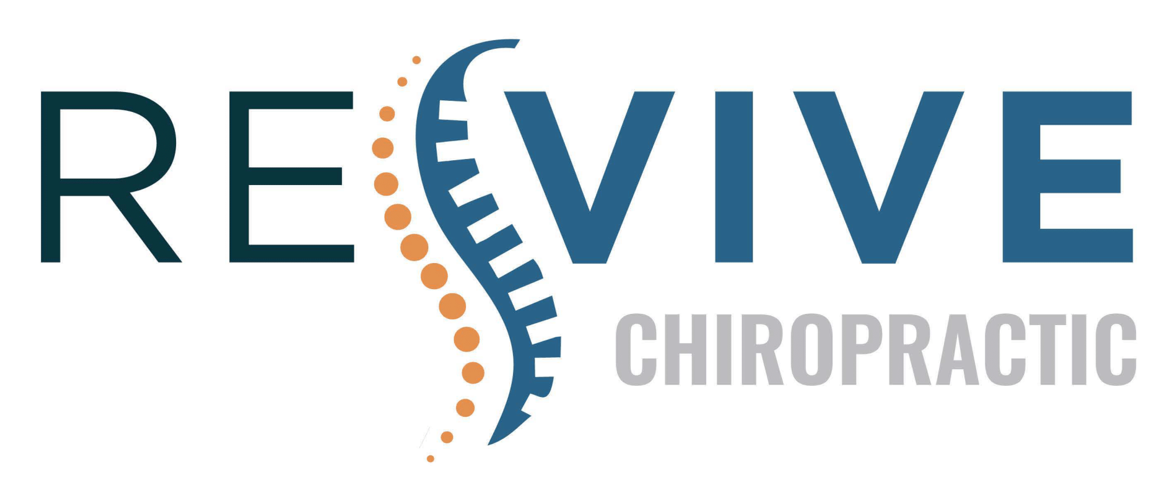You might often find yourself caught in a relentless cycle of training, convinced that pushing harder is the only path to success. This mindset, common among athletes, can lead you to overlook the crucial importance of recovery support. While aiming for peak performance, you may not realize how this culture of overtraining undermines both your physical and mental well-being. What's more, the lack of education on recovery strategies can leave you vulnerable to injuries and burnout. So, what's really at stake when you ignore these essential practices?
Misconceptions About Recovery
Many athletes hold misconceptions about recovery that can hinder their performance. One common belief is that recovery only matters after an intense workout or competition. In reality, recovery should be a constant consideration in your training routine. It's not just about resting after a tough session; it's about incorporating recovery strategies daily to maximize your gains and minimize injury risk.
Another misconception is that more training always leads to better results. You might think that pushing through fatigue is a sign of dedication, but it can actually lead to burnout and decreased performance. Balancing training with adequate recovery is essential for long-term success. Your body needs time to repair and adapt, and without that, you're setting yourself up for failure.
You may also underestimate the role of nutrition in recovery. Many athletes focus solely on their training regimen while neglecting what they fuel their bodies with. Proper nutrition not only aids in muscle recovery but also supports overall energy levels, helping you perform at your best.
Finally, some believe that recovery is solely physical. Mental recovery is equally important. Stress management techniques, such as mindfulness and relaxation, can enhance your overall recovery process.
The Culture of Overtraining
The pressure to constantly train harder and longer can create a culture of overtraining among athletes. You might find yourself caught in this cycle, believing that more hours in the gym or on the field will lead to better performance. Yet, this mindset often overlooks the essential role recovery plays in your success. When you push your body without adequate rest, you risk burnout, injury, and diminished performance.
Overtraining isn't just about physical exhaustion; it also affects your mental state. You may feel irritable, anxious, or even depressed as your body struggles to keep up with your relentless training schedule. This can lead to a vicious cycle where you feel compelled to train even harder to prove your dedication, further exacerbating fatigue and stress.
You might notice that many athletes idolize those who seem invincible—those who never take a day off. This glorification can make it difficult for you to acknowledge your own need for recovery. Peer pressure and societal expectations can push you to ignore the signs of overtraining, convincing you that rest is for the weak.
It's vital to recognize that taking time to recover isn't a sign of weakness but a strategy for long-term success. By prioritizing recovery, you'll not only enhance your performance but also sustain your passion for the sport.
Embracing a balanced approach to training can help you avoid the pitfalls of overtraining and lead to a healthier, more fulfilling athletic journey.
Pressure to Perform
As an athlete, you often feel the weight of the competitive environment around you, pushing you to meet high expectations.
This pressure can lead to a focus on short-term gains rather than long-term well-being.
It's essential to recognize how these factors can impact your performance and recovery.
Competitive Environment Impact
Athletes often feel the weight of their sport's competitive environment, where expectations can be crushing. This constant pressure to perform at your best can lead to prioritizing immediate results over the vital recovery processes needed for long-term success.
You might find yourself pushing through fatigue or pain, convinced that showing weakness could jeopardize your spot on the team or diminish your reputation.
In such a high-stakes atmosphere, it's easy to overlook the importance of recovery support. You may think that taking time off to rest or seek help is a sign of failure rather than a smart strategy for longevity.
The relentless drive to compete often overshadows the need for self-care, which can result in burnout or injuries that set you back even further.
As you navigate this competitive landscape, remember that sustaining performance is just as essential as achieving it. Embracing recovery as part of your routine can enhance your resilience and overall performance.
Recognizing the impact of your environment is the first step in valuing the recovery support you need to thrive in your sport.
Unrealistic Expectations Set
In a world driven by performance metrics and constant comparisons, unrealistic expectations can weigh heavily on you. The pressure to perform can lead you to ignore essential recovery practices, thinking they're a luxury you can't afford. You might feel that you have to push through pain or fatigue, which ultimately hampers your progress.
Here are four common unrealistic expectations that athletes face:
- Always Peak Performance: You may believe you should always be at your best, disregarding the natural ebb and flow of training cycles.
- Instant Results: The desire for quick success can lead you to overlook the long-term benefits of proper recovery.
- Comparison with Peers: It's easy to think you should match or exceed the performance of others, regardless of their training history or recovery practices.
- Ignoring Personal Needs: You might overlook your own unique needs, believing that what works for others will work for you.
These unrealistic expectations can drive you to neglect recovery, ultimately affecting your performance and well-being. Recognizing these pressures is the first step towards fostering a healthier approach to your athletic journey.
Short-Term Gains Focus
The relentless chase for short-term gains can create a pressure cooker environment where immediate results overshadow the importance of sustainable progress. You're constantly bombarded with messages that prioritize winning now, often at the expense of your long-term health and performance.
This focus on immediate outcomes can lead you to overlook critical recovery practices, such as rest, nutrition, and mental health support. When you're under pressure to perform, it's easy to push through fatigue or ignore the signs your body gives you. You might think that skipping recovery days or neglecting proper hydration won't have consequences, but in reality, this mindset can lead to burnout or injury.
You're sacrificing your future potential for fleeting victories. It's essential to remember that true success isn't just about today's results; it's about building a foundation for tomorrow. By shifting your focus from short-term gains to long-term development, you'll not only enhance your performance but also guarantee your health and well-being.
Embrace recovery as an integral part of your training. After all, a sustainable approach will lead to greater achievements over time, allowing you to thrive in your sport for years to come.
Lack of Education on Recovery
Many athletes underestimate the importance of recovery, often viewing it as a luxury rather than a necessity.
You might find that limited access to resources and inadequate coaching support only adds to this misunderstanding.
It's essential to address these gaps to enhance your overall performance and well-being.
Misunderstanding Recovery Importance
Lack of education about recovery often leads athletes to underestimate its significance.
You might think that pushing through fatigue and skipping rest days makes you tougher, but that mindset can be detrimental.
Recovery isn't just a break; it's an essential part of your training regimen that enhances performance and prevents injury.
Here are four key reasons why understanding recovery is vital for your athletic success:
- Muscle Repair: Recovery allows your muscles to heal and grow stronger after intense workouts.
- Injury Prevention: Ignoring recovery can lead to overuse injuries, which can sideline you for weeks or even months.
- Mental Clarity: Adequate rest sharpens your focus and mental resilience, essential for peak performance during competitions.
- Performance Gains: Incorporating recovery strategies can lead to improved endurance, speed, and overall performance.
Limited Access to Resources
Access to proper recovery resources can profoundly impact your athletic performance. Unfortunately, many athletes lack the education needed to understand these resources and how to use them effectively. You mightn't realize that recovery isn't just a luxury—it's a necessity for sustained improvement and injury prevention.
Without the right knowledge, you could be missing out on techniques that enhance your recovery, like foam rolling, stretching, and proper nutrition. Many athletes stick to what they know, often ignoring the science behind recovery practices. This limited exposure can lead to a one-dimensional approach, where you focus solely on training while neglecting the vital recovery phase.
Moreover, the availability of information varies widely. You might find yourself relying on outdated advice from peers or coaches who also lack training in recovery methods. This gap in education can hinder your performance and prolong your return to peak fitness after injuries.
To maximize your potential, seek out resources that focus on recovery education. Engage with professionals, read up on latest recovery techniques, and stay informed. Investing time in understanding recovery can pay off considerably, leading to better performance and overall well-being.
Inadequate Coaching Support
Coaching plays an important role in your recovery journey, yet many coaches may not prioritize this aspect due to a lack of education on recovery methods. This gap in knowledge can directly impact your performance and overall well-being.
When coaches overlook recovery, you might struggle to optimize your training and avoid injuries. Understanding effective recovery strategies is vital.
Here are four key areas where inadequate coaching support can hinder your recovery:
- Lack of Awareness: Coaches may not recognize the importance of recovery in your training regimen, leading to overtraining.
- Insufficient Education: Without proper training, coaches might be unaware of effective recovery techniques like active rest, nutrition, and sleep management.
- Inconsistent Practices: A coach's lack of knowledge can result in erratic recovery protocols, leaving you confused about what works best.
- Neglecting Individual Needs: Coaches mightn't tailor recovery plans to fit your specific needs, leading to ineffective recovery strategies.
To enhance your performance, it's essential for coaches to improve their understanding of recovery. This commitment can greatly bolster your athletic journey.
Ignoring Mental Health Factors
When athletes focus solely on physical training, they often overlook the vital role of mental health in their recovery process. You might think that pushing your body to the limit is enough, but neglecting your mental well-being can lead to burnout, anxiety, or even depression. These issues don't just affect your mood; they can hinder your performance, making it essential to address them during recovery.
Ignoring mental health factors can manifest in various ways. You may find yourself feeling unmotivated, trapped in negative thought patterns, or struggling to adapt to the demands of your sport. These feelings can create a vicious cycle where physical recovery becomes increasingly difficult. If you don't take the time to recognize and address these mental hurdles, your physical efforts may be wasted.
Incorporating mental health strategies into your recovery routine can make all the difference. This might involve mindfulness practices, such as meditation or journaling, to help you process your emotions and maintain focus.
Talking to a sports psychologist can also provide valuable insights and coping techniques tailored to your specific needs.
Inadequate Support Systems
A lack of robust support systems can greatly hinder an athlete's recovery journey. When you're focused on performance, it's easy to overlook the importance of having a strong network to help you through the recovery process.
Without this support, you might find yourself struggling, feeling isolated, and potentially jeopardizing your long-term health.
Here are four key components that often fall short in support systems:
- Access to Healthcare Professionals: You need timely access to physiotherapists, nutritionists, and mental health experts who can provide tailored advice and treatment.
- Team Support: It's essential to have a supportive team environment where coaches and teammates understand the importance of recovery. If they dismiss your needs, it can be demoralizing.
- Community Engagement: Engaging with fellow athletes can help you share experiences and recovery strategies. A lack of community can lead to feelings of loneliness during tough times.
- Family Involvement: Your family plays a significant role in your recovery. If they're not informed or engaged, you might struggle to find the emotional support you need.
When these elements are inadequate, you face challenges that can derail your recovery efforts.
It's important to recognize that building a dependable support system is just as important as training hard. Seeking help and fostering connections can greatly enhance your recovery journey, allowing you to return stronger and more resilient.
The Role of Technology
Technology plays an essential role in athlete recovery, offering innovative tools and resources that enhance the healing process. You might be surprised at how many options are available to help you optimize your recovery routine. From wearables to apps, the advancements in technology provide athletes like you with real-time data and insights into your body's needs.
Wearable devices track crucial metrics such as heart rate, sleep quality, and recovery time. This information enables you to make informed decisions about your training and recovery strategies. For instance, if your heart rate variability dips, it might signal that you need more rest or a different training approach. By paying attention to these indicators, you can prevent injuries and overtraining.
Additionally, recovery apps can guide you through personalized recovery protocols, incorporating techniques like foam rolling, stretching, and breathing exercises. You'll find customized routines that fit your specific needs, making your recovery more efficient. Some apps even integrate with your wearable devices, giving you a thorough view of your progress.
Moreover, technologies like cryotherapy and infrared saunas are becoming more accessible, offering advanced methods to reduce inflammation and promote muscle recovery. These options can help you bounce back faster from intense workouts or competitions.
Incorporating these technological tools into your recovery regimen can greatly enhance your performance. By staying informed and utilizing these resources, you'll set yourself up for success both in training and competition. Embrace technology, and let it support your journey as an athlete.
Conclusion
In today's competitive environment, it's essential for you to shift your mindset about recovery. Recognizing that rest isn't a sign of weakness but a critical component of your training can enhance your performance and prevent injuries. Don't underestimate the importance of mental health and proper support systems. Embrace technology to help you track your recovery progress and integrate effective strategies into your routine. Prioritizing recovery not only benefits your performance but also guarantees your long-term health as an athlete.



